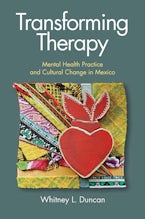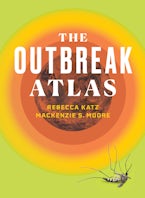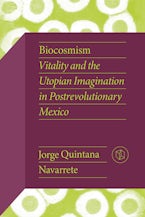- Home
- Transforming Therapy

Transforming Therapy
Mental Health Practice and Cultural Change in Mexico
Oaxaca is known for many things--its indigenous groups, archaeological sites, crafts, and textiles--but not for mental health care. When one talks with Oaxacans about mental health, most say it's a taboo topic and that people there think you "have to be crazy to go to a psychologist." Yet throughout Oaxaca are signs advertising the services of psicólogos; there are prominent conferences of mental health professionals; and self-help groups like Neurotics Anonymous thrive, where participants rise to say, "Hola, mi nombre es Raquel, y soy neurótica."
How does one explain the recent growth of Euroamerican-style therapies in the region? Author Whitney L. Duncan analyzes this phenomenon of "psy-globalization" and develops a rich ethnography of its effects on Oaxacans' understandings of themselves and their emotions, ultimately showing how globalizing forms of care are transformative for and transformed by the local context. She also delves into the mental health impacts of migration from Mexico to the United States, both for migrants who return and for the family members they leave behind.
This book is a recipient of the Norman L. and Roselea J. Goldberg Prize from Vanderbilt University Press for the best book in the area of medicine.
How does one explain the recent growth of Euroamerican-style therapies in the region? Author Whitney L. Duncan analyzes this phenomenon of "psy-globalization" and develops a rich ethnography of its effects on Oaxacans' understandings of themselves and their emotions, ultimately showing how globalizing forms of care are transformative for and transformed by the local context. She also delves into the mental health impacts of migration from Mexico to the United States, both for migrants who return and for the family members they leave behind.
This book is a recipient of the Norman L. and Roselea J. Goldberg Prize from Vanderbilt University Press for the best book in the area of medicine.
Whitney L. Duncan is Assistant Professor of Anthropology at the University of Northern Colorado.
"This marvelous book develops the concepts of psychological and psychiatric globalization in Oaxaca, Mexico, revealing the deep contradictions inherent in them. On the one hand, these terms denote the process by which two mental health disciplines develop transnational 'ways of knowing and working upon the self' that help fashion modern self-actualizing and regulating subjects ready to implement the neoliberal agendas of globalization. And, on the other, ethnographic analysis shows how this process results in locally recast, empowering tools for acknowledging the suffering created by these agendas and for seeking individual and collective liberation from them. The limits and contours of this quest for agency and empowerment are explored in a harsh environment of structural violence. Duncan focuses on psy-sociality—the ways in which people bond with and support each other through psy-organized practices to confront social and psychological suffering. Her analysis shows how psy-sociality is shaped locally by sufferers and practitioners themselves to resist their transformation into atomized subjects of governmentality and to reconstitute in new ways the cultural centrality of socio-moral concepts of the self and interdependent family relations in Oaxaca. Duncan provides rich ethnographic documentation of these transformative, contradictory processes, resulting in a study that is at once profound and hard to put down."
—Roberto Lewis-Fernández, MD, Professor of Clinical Psychiatry at Columbia College of Physicians and Surgeons and Director of the New York State (NYS) Center of Excellence for Cultural Competence and the Hispanic Treatment Program at NYS Psychiatric Institute
"This book explores psy-services in 'other' parts of the world, beyond the global North or large cities in the global South. As Duncan shows, psy-concepts are a key part of Oaxaca, where they are reinterpreted, re-examined, accepted wholesale, unpacked, or discarded. That is, they are mobile, moveable concepts that are used by people for their own psy-sociality needs."
—Vania Smith-Oka, author of Shaping the Motherhood of Indigenous Mexico
"This emotionally provocative ethnography explores diverse therapeutic experiences and psychiatric sociality among urban and rural Oaxacans and provides a potent theoretical and methodological balance to a burgeoning public health and policy discourse on global mental health."
—Mary-Jo DelVecchio Good, Professor of Global Health and Social Medicine, Harvard University/Harvard Medical School











